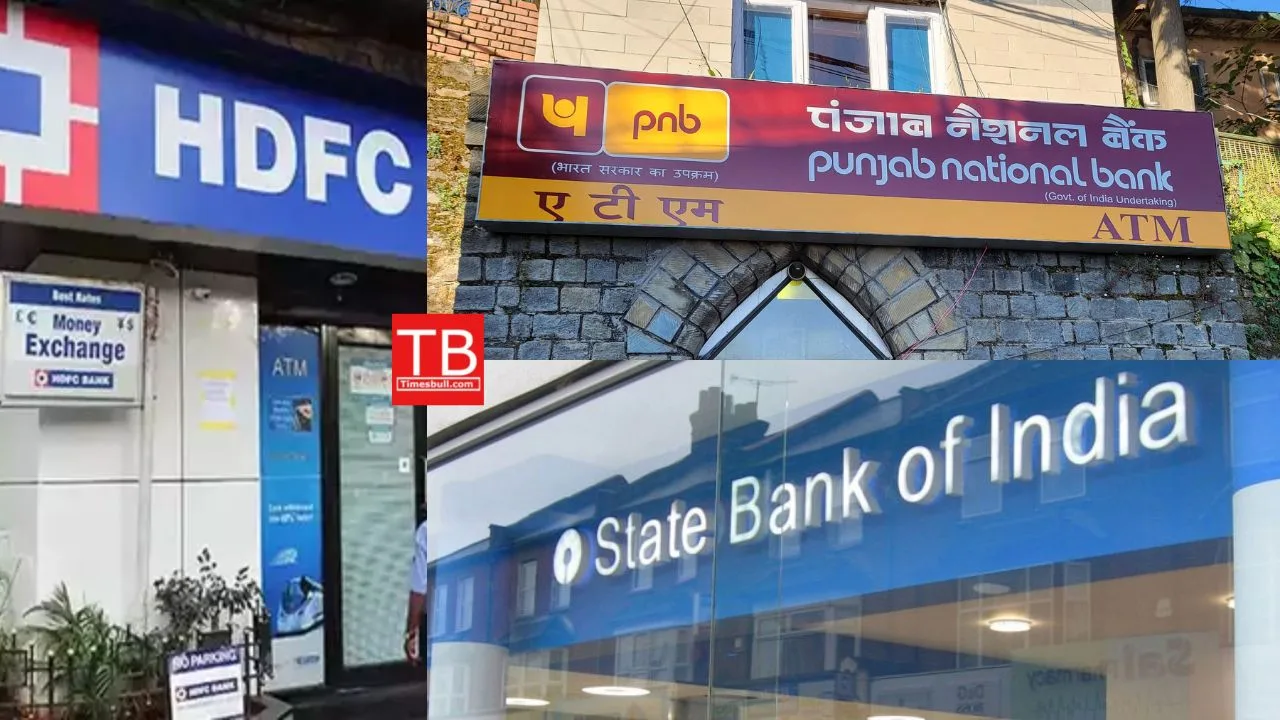The year 2025 has begun, and with the new year, many people set resolutions, one of which is often to start or increase their investments. Among traditional investment options, bank FDs remain the most popular. The biggest advantage of bank FDs is that they are not subject to market fluctuations, making them a safer choice. Investors can choose to deposit money for various maturities, ranging from 7 days to 10 years, with the interest rate known at the time of investment. This fixed-income option can be ideal for those seeking stable returns within a set period.
Experts also regard bank FDs as a safe investment. Therefore, they can be a great option for investors looking for low-risk investments. If you are considering investing in a bank FD in 2025, we’ve compared the interest rates of three major banks: SBI, PNB, and HDFC Bank. Let’s explore the FD calculation to determine where you will earn the most benefit by depositing Rs 5 lakh for the next 1, 3, or 5 years.
SBI Offers FD Interest Rates Up to 7.50%
The State Bank of India (SBI), the country’s largest public sector bank, offers fixed deposits ranging from 7 days to 10 years, with interest rates ranging from 3.50% to 7.50%.
- For 1-year FD: Regular customers earn 6.80%, and senior citizens receive 7.30% interest.
- For 3-year FD: Regular customers earn 7%, and senior citizens receive 7.50% interest.
- For 5-year FD: Regular customers earn 6.75%, and senior citizens receive 7.25% interest.
HDFC Bank’s FD Rates Offer Competitive Returns
HDFC Bank, the country’s largest private sector bank, provides FD options from 7 days to 10 years, with annual interest rates ranging from 3% to 7.90%.
- For 1-year FD: Regular customers receive 6.60%, while senior citizens earn 7.10%.
- For 3-year FD: Regular customers earn 7%, and senior citizens receive 7.50%.
- For 5-year FD: Both regular and senior customers earn 7% and 7.50%, respectively.
PNB Offers Attractive FD Rates for Customers
Punjab National Bank (PNB), another prominent government bank, also offers FDs from 7 days to 10 years, with interest rates ranging from 3.50% to 8%.
- For 1-year FD: Regular customers receive 6.80%, and senior citizens earn 7.30%.
- For 3-year FD: Regular customers earn 7%, and senior citizens receive 7.50%.
- For 5-year FD: Regular customers earn 6.50%, and senior citizens receive 7%.
What Will You Get in SBI FDs?
According to the SBI FD calculator, here’s the return you can expect from a ₹5 lakh FD:
- For 1 year: Regular customers receive ₹5,34,000, while senior citizens get ₹5,36,500.
- For 3 years: Regular customers receive ₹6,12,522, while senior citizens get ₹6,21,148.
- For 5 years: Regular customers receive ₹6,93,122, while senior citizens get ₹7,09,507.
HDFC Bank FD Returns
If you invest ₹5 lakh in an FD with HDFC Bank, you can expect:
- For 1 year: Regular customers receive ₹5,33,825, and senior citizens get ₹5,36,457.
- For 3 years: Regular customers get ₹6,15,720, while senior citizens receive ₹6,24,858.
- For 5 years: Regular customers get ₹7,07,390, while senior citizens get ₹7,24,974.
PNB FD Returns
In PNB, investing ₹5 lakh in FDs would return:
- For 1 year: Regular customers get ₹5,34,877, and senior citizens get ₹5,37,511.
- For 3 years: Regular customers receive ₹6,15,720, and senior citizens get ₹6,24,858.
- For 5 years: Regular customers get ₹6,90,210, and senior citizens receive ₹7,07,389.
Tax Considerations for Bank FDs
According to income tax rules, tax is deducted from the interest earned on bank FDs. If the total interest exceeds ₹40,000 in a financial year (₹50,000 for senior citizens), TDS is applicable. The standard rate is 10%, but it increases to 20% if no PAN card is provided. However, if an individual’s income falls below the taxable limit, they can submit Form 15G to prevent TDS deduction. Senior citizens need to fill out Form 15H.
Disclaimer
The interest rates mentioned here are based on the official websites of the respective banks. Times Bull is not responsible for any financial investments made, as the decision and responsibility lie entirely with the investor. It is advisable to consult a financial advisor before making any investment decisions for optimal results.
